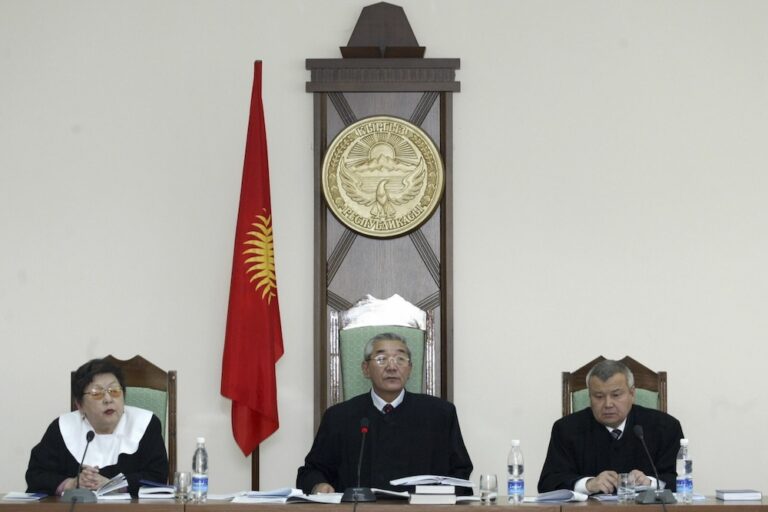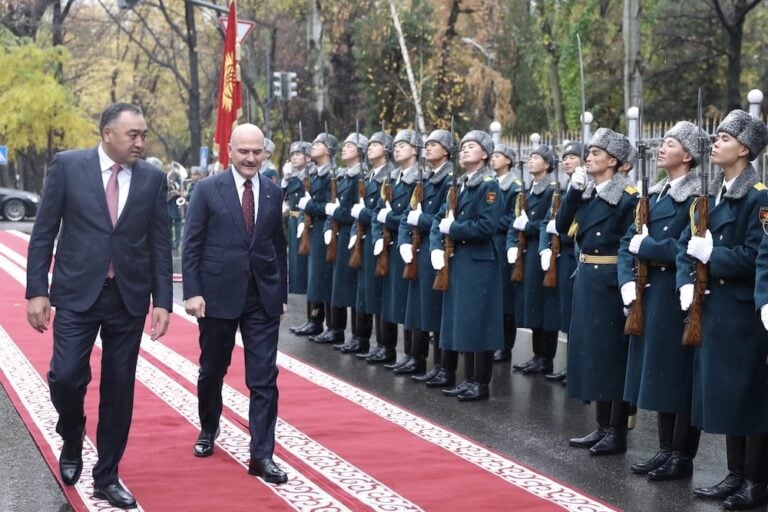Investigative reporter and human rights defender Azimjon Askarov had embarrassed officials time and again with his reporting on law enforcement abuses. When ethnic unrest broke out in June 2010, authorities struck back with a vengeance.
(CPJ/IFEX) – New York, 12 June 2012 – Ethnically motivated beatings, arsons, and killings were sweeping through southern Kyrgyzstan, and Azimjon Askarov was exhausted. It was early on June 13, 2010, and Askarov, a prominent reporter and human rights defender, had been up all night documenting the unrest that pitted ethnic Kyrgyz and Uzbeks against one another, a conflagration that ignited three days before in Osh and was now racing through his village of Bazar-Korgon.
At 5 a.m., unable to stay awake, Askarov asked a companion to drive him home. About four hours later, Askarov recounts today in an interview for CPJ, his wife awakened him with news: A police officer had just been killed. Askarov roused himself, grabbed his camera, and headed out, going first to his office and then to the scene of the killing on the nearby Bishkek-to-Osh highway, a mountainous four-lane thoroughfare where hundreds of ethnic Uzbeks had massed in an effort to block what they perceived to be Kyrgyz efforts to move aggressors and weapons into the region.
The situation was tense as he arrived, Askarov recalls, as police were firing into the crowd and a civilian, bleeding, dropped to the ground in front of him. In all, three civilians were killed in the village that day along with the officer, the human rights group Kylym Shamy said. By the time the violence subsided in Bazar-Korgon on June 15, at least 19 were dead, more than 130 were injured, and more than 400 buildings had been torched, according to accounts from the government, news outlets, and human rights groups. Askarov was among those keeping a close tally, visiting the morgue to identify bodies, interviewing local residents and officials, keeping a diary with his extensive notes, shooting videos, and taking photographs.
But two days after the confrontation on the highway, Askarov was himself in police custody, where he would endure prolonged brutality during which officers “beat me like a soccer ball.” Today, two years later, Askarov, a 61-year-old Bazar-Korgon native of Uzbek descent, is serving a life prison term on charges that he was complicit in the officer’s murder and had committed a series of other anti-state crimes. The conviction has been challenged by the government’s own ombudsman’s office, and Askarov’s lawyers are now preparing a complaint to be filed with the U.N. Human Rights Committee.


